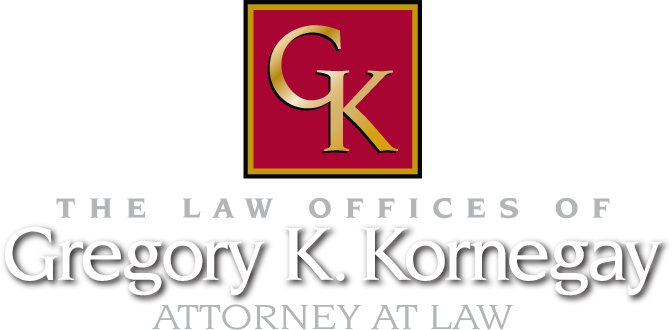Non-dischargeable Debts
The general rule is that debts that existed before the bankruptcy petition is filed are discharged at the end of the case unless a specific exception to the discharge rule says otherwise.
Most debts listed on Schedule F for Chapter 7 debtors will be discharged. Sometimes debts are discharged in Chapter 13. The reason some debts may not be dischargeable is that there is a public policy interest against the discharge (i.e., child support or student loans). Some tax debts cannot be discharged. The debt is thought to be so important to the welfare of our society, that the government thinks it should not be discharged or forgiven. There are two types of non-dischargeable debts: Debts that are non-dischargeable by statute or Federal Law and debts that must be determined by the court to be non-dischargeable. Debts that are non-dischargeable according to federal statute are:
- Taxes – Taxes are the debts that are most often non-dischargeable. This is normally because the tax debt is a priority claim. This may even include any debt incurred to pay the tax. It is fair to say that if a tax is owed and a tax return was not filed, or a fraudulent return was filed, or the debtor attempted to evade the tax, then this tax debt is not dischargeable. Also, if there was a late return filed within two years of filing for bankruptcy, this tax would not be dischargeable. However, not all taxes are non-dischargeable. Some tax debts can be discharged under very limited circumstances (does the tax claim still have priority status?) :
- Income tax debt or taxes on gross receipts, depending on when the tax return was due, when the tax was assessed or if it was not assessed at all before the bankruptcy filing.
- Property taxes incurred before the bankruptcy filing depending on when the property taxes were last payable without penalty. Discharge of property taxes may also depend on whether the property taxes have taken on lien status. Normally, if property taxes take on a lien status then this may actually remove the tax debt from priority debts and allow the tax debt to become dischargeable – however, even if the tax debt may be dischargeable, the tax lien based on the underlying debt may still remain enforceable against the debtor.
- Debts Incurred thru False Pretenses, Fraud or False Financial Statements– These are debts where money, property or services were obtained by false pretenses, fraud or a false financial statement. Normally this means that the creditor must rely on the representations made by the debtor and give up something to the debtor because of that reliance. The creditor’s reliance must be reasonable and the debtor must have an actual intent to deceive. An intent to deceive can be inferred from the circumstances, but a honest mistake is not fraud and negligence concerning the debtor’s representation is not fraud.
- Public Benefits Overpayments: Debtors with low income or the elderly may have issues with overpayments of social security, unemployment, welfare (i.e., SSI) or other public. This is a situation in which the government says it over paid a person and then they send a letter stating that they expect a certain amount of the money to be paid back. The bankruptcy court uses a more favorable standard for the debtor in deciding if these overpayments should be discharged. Of course any overpayment caused by an administrative error should be discharged under the bankruptcy rules. If there is a clear case of fraud to obtain the benefits, then the debt will not be discharged (i.e., unemployment benefits fraud).
- Bad Checks.
- Debt owed to a Single Creditor for Luxury Goods or Services that total more than $600 incurred by the Debtor Within 90 days before Filing for Bankruptcy, or Cash Advances of Over $875 within 70 Days Before Filing for Bankruptcy A Debt that is Not Listed on the Schedule of Liabilities in Time to Permit a Timely Filing of a Proof of Claim, Unless the Creditor had Actual Knowledge of the Case in Time for Such Filing. This is why it is so important to put all debts on the bankruptcy petition – a complete and accurate list of the debts is a must. If a debt is not on the bankruptcy petition, it may not get discharged, even though there is a little more leeway with a Chapter 7 “no asset case”, since no proofs of claim are required to be filed.
- “Luxury goods or services” are things that are not reasonably acquired for the support of the debtor or the debtor’s dependents. If you purchased more than $600 of food or clothing or maybe even a needed major appliance, that is ok.
- Fraud as a Fiduciary, Embezzlement or Larceny: This situation could involve guardians for the elderly or executors of estates where a person is in a position of trust as a fiduciary and it is alleged that the fiduciary committed fraud, or did not properly account for funds in their trust. Larceny and embezzlement are also included in this category but you do not have to be a fiduciary for this exception to discharge ability to apply. It is important to remember that it is the Federal Common Law of larceny and embezzlement that applies and not the state standard.
- Domestic Support Obligations: This is one category that has grown over the years to now include more types of domestic obligations. Domestic obligations include alimony, maintenance or support that is owed to “a spouse, former spouse, or child of the debtor or such child’s parent, legal guardian or responsible relative; or a governmental unit.” This means a domestic debt that is due before, on, or after the bankruptcy cased is filed. The domestic debt can come from a separation agreement, divorce decree, or property settlement agreement, an order of the court or a determination made by a governmental unit. For it to be non-dischargeable, the obligation should not be assigned to a non-governmental entity, unless it is assigned voluntarily by the spouse, former spouse, child of the debtor, or such child’s parent, legal guardian, or responsible relative for the purpose of collecting the debt. Sometimes a distinction is made between “support” and “property settlement”. If the claims are for alimony, child support, and/or spousal maintenance/support, then we call these “Domestic Support Obligations” (DSOs). If the claims are for just property division we call these equitable distribution (ED). Domestic Support Obligations (DSOs) are not dischargeable in either a Chapter 7 or Chapter 13. Equitable Distribution (ED) claims are not dischargeable in a Chapter 7, but Equitable Distribution claims can be discharged in a Chapter 13. The bottom line is that a property settlement may be dischargeable in Chapter 13 bankruptcy.
- Debt arising from the Debtor’s Willful and Malicious Injury to a Person or Property of Another: For the debt to be non-dischargeable, the debtor must intend to harm the creditor or an entity or its property. An example of intentional conduct would be an Assault and Battery. If the debtor were only negligent, as in an auto accident, this would make the debt dischargeable. The debtor must intend harmful consequences for the debt to be non-dischargeable. Sometimes a debtor will convert the creditor’s property serving as collateral – that is the debtor will sell the collateral that has a security interest attached to it. However, for the debt to be nondischargeable, the creditor must prove that the debtor understood that there was a security interest and the debtor acted with intent to harm the creditor. If the creditor knew of the conversion or sale and did not object to the debtor’s actions, then the debt may be dischargeable. The action that would make the debt nondischargeable would have to be taken by the debtor, not the debtor’s employee or child.
- Debt for a fine or Penalty Payable to a Governmental Agency for Nonpayment of a Tax if the Tax Imposed is Determined to be Non-dischargeable and was Incurred Three Years Prior to Filing a Petition: For the debt to be non-dischargeable, a fine and or penalty must be owed to the government for the government’s benefit. It may be an administrative agency that has assessed the fine or penalty or it may be a court – it must be punitive in nature as opposed to just compensatory for the non-dischargeability rule to apply. A tax penalty is dischargeable if it is related to a tax that is dischargeable. A tax penalty relating to a transaction that occurred more than three years before the filing of bankruptcy is dischargeable.
- Student Loans: Governmental or non-profit student loans are non-dischargeable if the court finds that the repayment of the loan would not impose an undue hardship on the debtor and the debtor’s dependents. “Undue hardship” means more than the normal hardship that comes from the expense of future payments. For North Carolina, the Federal Law is very restrictive as to what “undue hardship” means. It is very difficult to prove an undue hardship – it is almost impossible. Congress has protected the education loan industry so that students borrow large amounts of money that will not be discharged most of the time.
- A Debt arising out of a Judgment against the Debtor for the Death or Personal Injury of Another Resulting from the Debtor’s Operation of a Motor Vehicle or Aircraft While Intoxicated: The injury or death must have resulted from the debtor operating a motor vehicle, vessel, or aircraft while intoxicated from alcohol, drug use or other substances.
- Debts Owed in a Previous Bankruptcy Proceeding Where the Debtor waived or was Denied a Discharge: This means debts not discharged in a prior bankruptcy case. This would not apply if there was a time bar for consecutive bankruptcies or because of a failure to pay filing fees. This exception would not apply when a previous case was dismissed.
- A Debt Arising From a Judgment or Consent Decree Issued by the FDIC or arising from a Settlement of a Fraud Action Involving a Bank or Credit Union.
- Federal Criminal Restitution
- Debt to pay a Tax to a Governmental Unit, other than the United States, that would be Non-dischargeable: Debts incurred to pay other non-dischargeable obligations are not normally discharged. Most specifically, a debt incurred to pay a federal tax that would have been nondischargeable, is nondischargeable to the same extent as the tax debt would have been.
- A Fine or Penalty Imposed Under Federal Election Law
- Marital Property Settlement Debts: These debts are incurred in the course of a divorce or separation or in connection with a separation agreement, divorce decree or other order of a court concerning property settlement debts. The category for the non-dischargeability of domestic support obligations such as spousal support or child support is covered in another section. It really makes no difference in a Chapter 7 case since both domestic obligations (i.e., child support, spousal support) and property settlements arising out of a divorce or separation are non-dischargeable. However, in a Chapter 13 case, a property settlement debt may be dischargeable even though a domestic obligation is not. The bottom line with these cases is to determine whether the debt or obligation is actually in the nature of a “domestic support obligation” (i.e., spousal support, child support) or is it a true property settlement (equitable distribution). Sometimes the label put on the debt or obligation is not accurate – it may really be support instead of a property settlement or a property settlement may have characteristics of a domestic support obligation, but is still a property settlement.
- Debts for Certain Property Association Fees: Debts for membership association fees related to an interest in condominium units, shares of a cooperative corporation, and interest in a lot in a homeowners association. These fees are non-dischargeable as long as the debtor has a legal, equitable, or possessory ownership interest in the property. This section does not apply to Chapter 13 cases and the fess or assessments should become dischargeable after the debtor has sold, or disposed of his or her ownership interest in the property.
- Filing Fees for Filing a Complaint, Motion, or Appeal and Costs Related to Filings by a Prisoner
- Debt Owed to a Pension or Profit Sharing Plan Under Certain Sections of the Internal Revenue Code
- A Debt Owed for the Violation of any Federal Securities Laws
- A Debt owed to a Creditor that the Court Determines to be Nondischargeable
What Our Clients Say:
Member:

Attorney Gregory Kornegay
Greg is a trial attorney in Wilmington with over 30 years of experience. Greg was born and raised in southeastern North Carolina. Before law school he managed a store with employees making a payroll every week. His first job out of law school was as an Assistant District Attorney investigating and trying cases for the State of North Carolina. Through the years he has handled many different types of cases – including death penalty cases.
Being married with children has been a blessing and a challenge, but has served him well in understanding the problems individuals and families face as they live out their lives. Greg believes that each case is different and the needs of each client are unique, but there are certain themes of life that we all share.


